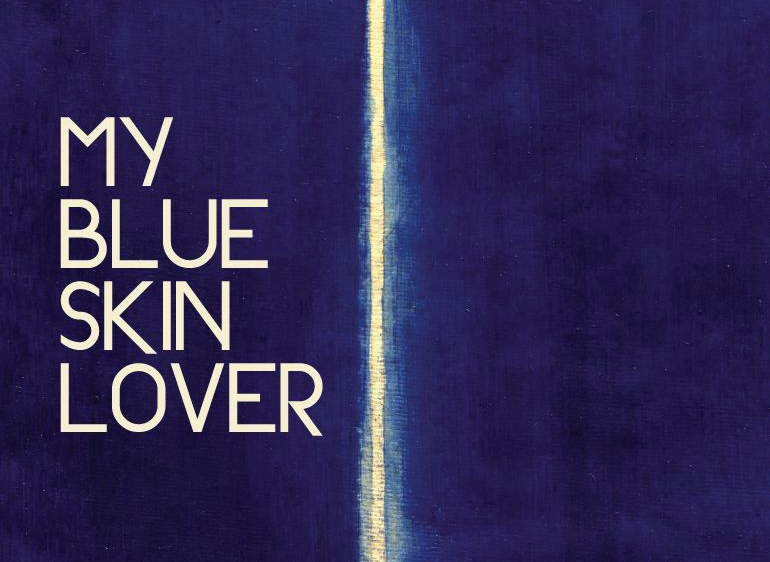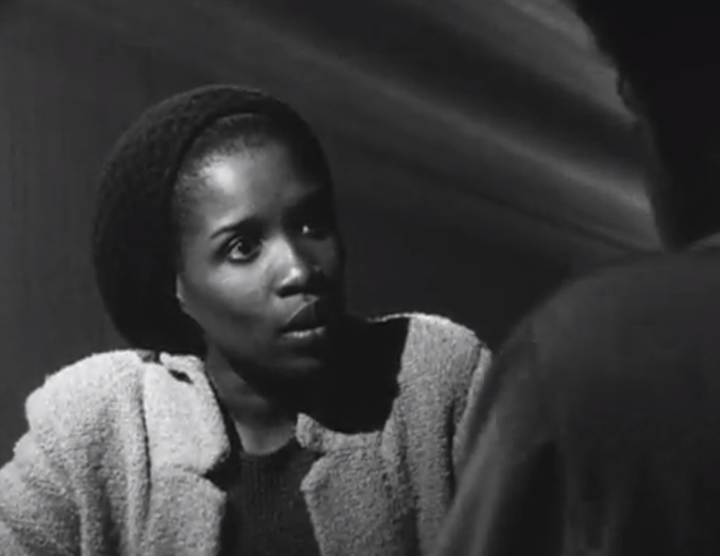
Several weeks ago I received an e-mail from Monona Wali, announcing the publication of her novel My Blue Skin Lover (2014, Blue Jay Ink). I’m not really a literary critic, although I was trained as such as an undergraduate English major, but I did want to write about her book (which is a perfect summer read) because Monona is a member of the L.A. Rebellion cohort. We showed her 1982 thesis film, Grey Area, in our “L.A. Rebellion Redux” program in the last UCLA Festival of Preservation, as well as our L.A. Rebellion touring series. The title refers to the spaces of compromise that seemingly have to be made for persons of color to survive in white society. The film itself revolves around a female African American television reporter who must compromise her political principles to keep her job, just as a former Black Panther Party member gets out of prison, only to realize that the old comrades in the struggle have moved on with their lives. It is also a plea for community development in  Watts and other Black Los Angeles neighborhoods, a concern that connects many of the L.A. Rebellion projects. As Monona confessed to us when we screened the film, she was deeply sympathetic to the Black Panthers, although she is Indian, and not African American.
Watts and other Black Los Angeles neighborhoods, a concern that connects many of the L.A. Rebellion projects. As Monona confessed to us when we screened the film, she was deeply sympathetic to the Black Panthers, although she is Indian, and not African American.
In fact, Monona Wali was born in Benares, India. She earned her M.F.A. from the UCLA School of Theater, Film and Television in 1983, receiving the Lynn Weston Memorial Prize for Grey Area. She also co-directed and edited Maria’s Story (1990), a documentary about a guerilla leader in the Salvadoran Civil War. The film was aired nationally on PBS’ POV in 1991, and received the Blue Ribbon Edward R. Murrow award at the American Film Festival, among many other awards. I had been reading Wali’s articles in publications such as Black Film Review since the early 1980s, long before I met her for the L.A. Rebellion program. What I didn’t know was that she is also a published short story writer and professor at Santa Monica College, where she teaches creative writing.

My Blue Skin Lover gets Monona back to her Indian roots. The title refers to the god Shiva who, Wali tells us, “can reduce Kama, the god of love, to ashes. Shiva who swallows an ocean of poison in order to save the world and in doing so gains nothing more than a blue stain on his neck. Shiva who breaks the anger of Ganga, the river goddess, with his head and takes her for his second wife, saving the earthfrom deluge.” Shiva is also known to have paid visitations to earthly mortals, and so it is with Wali’s heroine, a married Columbia Ph.D. candidate writing her dissertation about the mystic Virashaiva poets and saints of South India who were Shiva worshippers. While having self doubts about her own work, on the one hand, because her dissertation advisor is pressuring her to change the direction of her thesis---and tensions with her Anglo-American businessman husband who is hell-bent on climbing the corporate ladder, on the other---Wali’s first person narrator begins dreaming about sexual encounters with Shiva. Or are they real and not dreams? She is never quite sure herself, especially after catching glimpses of the blue god on New York City streets, and actually begins to believe she is losing her mind, like one of the female subjects for her dissertation.
I don’t know to what degree Monona Wali’s novel is autobiographical, but I certainly learned a great deal about Indian culture, Hinduism, the social position of Indian-Americans in this country and female sexuality. Wali’s prose style is quick and easy, and the translations of Sanskrit poetry quoted throughout are strikingly beautiful. Well worth a read.






 Mobile Navigation
Mobile Navigation

